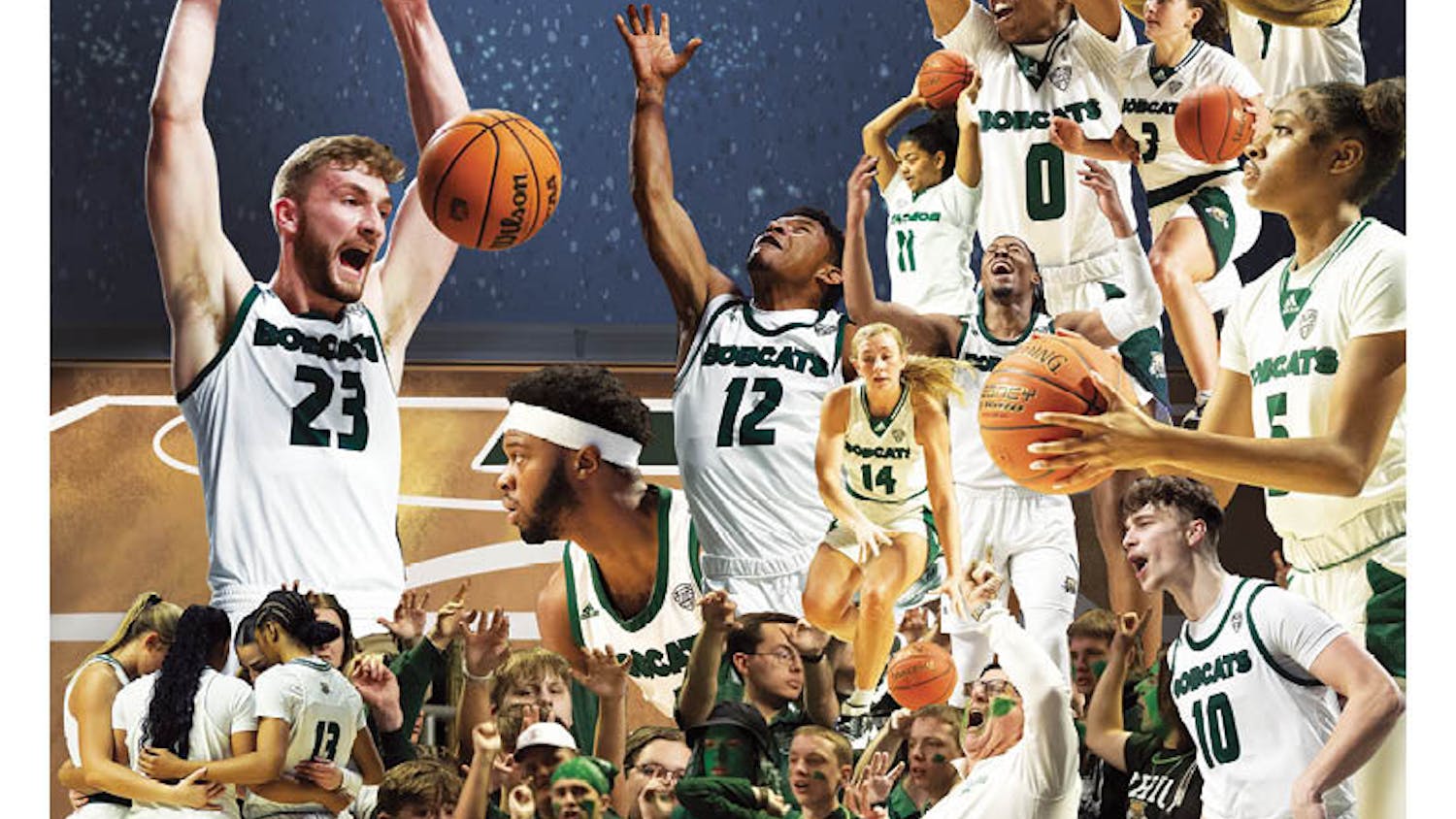Editor’s note: This is the second in a series analyzing President Roderick McDavis’ decade at Ohio University.
Ohio University President Roderick McDavis said at his inaugural address that he wanted to increase diversity on campus and his “first step” would be to form an Urban Scholars Program.
He wanted to eventually support “100 new scholars annually,” according to a 2004 news release.
A year after that inaugural speech, McDavis started the program for the 2005-06 academic year and accepted 12 Urban Scholars.
There are four Urban Scholars on campus this year; only one student per graduating class has been accepted for at least four years.
McDavis and his wife, Deborah, donated $8,000 to help fund the first class of Urban Scholars, and the McDavises have continued to donate to scholarship funds to bolster diversity on campus.
Ethnic diversity has increased at OU during McDavis’ decade as president.
In 2004, 89 percent of OU’s student body was white. Last year, the student body was 79 percent white. This fall, the new freshman class is composed of about 84 percent white students. The number of African American students has increased slightly more than one percent between 2004 and last year. The number of Hispanic, Asian American and international students on-campus has also risen since 2004.
The Urban Scholars Program awards more than $14,000 in scholarship money annually for up to four years for students with high academic achievements from Ohio’s low income, urban areas.
This year’s tuition, not including additional fees or room and board, is $10,536 for in-state students per year.
Due to a lack of funds, the program can now only afford to offer a four-year renewable scholarship to one student in each graduating class, said Cecil Walters, director of the Office of Multicultural Student Access and Retention.
“In order to be solvent, it’s one (scholarship) a year now,” he said. “(Initially) there was a huge fundraising effort made by the president and others, but none of that money was endowed.”
McDavis’ Chief of Staff Jennifer Kirksey, reached by The Post late Tuesday, initially called McDavis’ original goal of providing the scholarship to 100 students every year a “typo” in an email. However, news releases from OU and media reports at the time reiterate the program’s eventual goal of recruiting 100 new scholars annually.
“It is clear 100 must have been the original goal when the scholarship was first established before the economic downturn,” Kirksey said. “We would be pleased to achieve 100 Urban Scholars but 40 total is a more realistic goal in our current economic realities.”
Since the beginning of The Promise Lives Campaign in 2009, the goal has been changed to recruit 10 new scholars per year for a total of 40 Urban Scholars on campus at once, Kirksey said.
In June 2005, more than $900,000 in gifts and pledges were raised to fund the program, according to that 2005 news release.
“Ohio University has escalated its strategy of endowing scholarships so that funds for high-impact financial aid programs, such as the Urban Scholars Program, are available for perpetuity,” McDavis said in an email to The Post. “By endowing additional scholarships, we hope to make aid available to more students from disproportionately represented groups in the future.”
Virtually all of the funding for the program comes from donors, Walters said, adding that the Ebony Bobcat Network, an alumni group, is currently working on creating an endowment fund to help sponsor the program.
Urban Scholars participate in extracurricular activities, such as workshops and classes with Appalachian and Templeton scholars as a part of the program as well, Walters said.
The program was set to expand, eventually, to urban areas outside of Ohio as well, according to a 2005 news release.
But the Urban Scholars Program is still only open to Ohio residents, such as this year’s freshman scholar, Jalen Perkins, a freshman from Columbus.
“I wouldn’t have been able to pay for college without that scholarship,” said Perkins, who is studying chemical engineering.
For Perkins, coming to OU was “a culture shock,” as she is often one of only a few African American students or females in her classes. She said student groups, like the National Society of Black Engineers, have helped ease her into life on campus. Nonetheless she stressed that diversity is more than just ethnicity.
“It’s about people from all different walks of life coming together, people with different backgrounds, experiences, places,” she said.
The Multicultural Center, Women’s Center, LGBT Center and various religious groups on campus are all part of the effort to support and foster diversity on campus, said Linda Daniels, director of the Multicultural Center and programs.
“All you can do is ... provide opportunities for people to get to know each other on a different level,” Daniels said.
@ohitchcock
oh271711@ohio.edu






